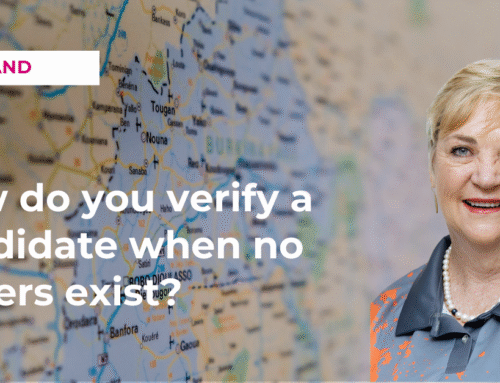All companies need to screen their suppliers and other counterparties, says Johan Wahlström at ToFindOut. By adapting clear processes, through the compliance service IDD, employers can create positive synergies within the sustainability field.

Do you know who you are doing business with? For most of us that answer would be “of course”, far from everyone is in control of knowing who their suppliers, potential acquisitions, investors, customers and other counterparts really are. At least on a the levels needed, says Johan Wahlström, analyst at ToFindOut.
– When it comes to the knowledge level in regards of the relationships surrounding the company, alarmingly few has all the insights they need to be able to answer the most crucial questions about who they do business with, he says.
Background checks for companies
IDD, or Integrity Due Diligence, is a background screening that applies to companies – with the company itself and the key people behind or surrounding it as a subject for the screening. The service delivers a full, risk-focused analysis that can underpin the clients decision making process. .
The screening of a supplier can include everything from a “sanity check” – read: personal, financial and legal information – on the management team or owner(s), but can also include an inspection of the company’s network and partners. The screening can be tailored to fit particular needs, but ToFindOut IDD also use standardised services for tenantary checks , screenings of supplier, compliance and M&A.
– To keep track of the companies, their management team and the people behind them is, first and foremost, a matter of risk management. You need to be able to take responsibility for the actions of your suppliers; your customers take this for granted. We have all seen the media reports about large companies that failed to control their counterparties, in Sweden Swedbank is the latest example. It’s often the supplier who’s responsible for misdoings, not seldom within work environmental concerns or human rights issues. When that kind of information reaches the public, all companies wish that they would have known before, says Johan.
IDD as part of the sustainability policy
The responsibility connected to human rights and the environment are two of the less talked about gains of a well-functioning IDD strategy.
– Sustainability and Corporate Social Responsibility is defined much broader today than before. As a company you are a part of society, you are expected to contribute to making the world a better place. To require a high standard from your suppliers is a question of responsibility and should be part of all companies sustainability policy. Your suppliers have the incitament of adapting to your needs, for obvious reasons. That means that you have the possibility of creating positive synergies just by being more clear with them, simply by setting some rules. Perform regular screenings also gets rid of unreliable suppliers, which creates a safer working environment for everyone.
With power comes responsibility. Johan emphasises that there are industries in greater need of an updated IDD strategy than others. Two examples are the construction industry and the real estate industry.
– They are both exposed to a lot of irresponsible actors, and even organised crime . At the same time they are falling short on counteracting these risks in a systematic manner. Tiny little changes are made, but only as an immediate answer to the reactions of their customers, often following a scandal the media reported on. Their proactivity levels are very low. I believe that the pressure the customers place on them finally will lead to these industries, who has the most challenges, will have to take action and assume more responsibility. There is also an employer branding value in this that shouldn’t be underrated. The employees of today demands that the company they work for takes action against injustices and unsustainability.
Do you want to hear more about how compliance and sustainability go together? Contact Johan.




